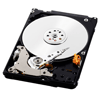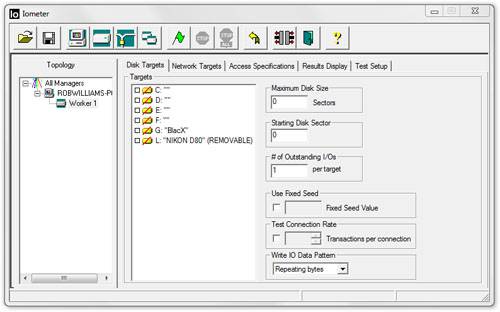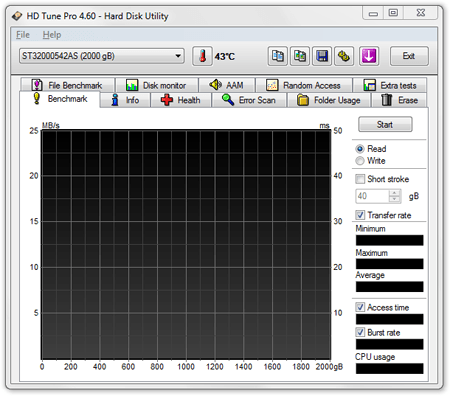- Qualcomm Launches Snapdragon 4 Gen 2 Mobile Platform
- AMD Launches Ryzen PRO 7000 Series Mobile & Desktop Platform
- Intel Launches Sleek Single-Slot Arc Pro A60 Workstation Graphics Card
- NVIDIA Announces Latest Ada Lovelace Additions: GeForce RTX 4060 Ti & RTX 4060
- Maxon Redshift With AMD Radeon GPU Rendering Support Now Available
Western Digital Scorpio Blue 1TB Mobile Hard Drive Review

Mobile warriors have their advantages, but storage isn’t one of them. It’s not uncommon to see desktop users with multiple TBs of hard drives, but notebook users tend to suffer with 500 or 750GB options. Western Digital, with its 9.5mm tall WD10JPVT, wants to change that – and trust us when we say that it’s well worth looking into.
Page 7 – Synthetic: Iometer; HD Tune Pro
Iometer 1.1.0
Originally developed by Intel, and since given to the open-source community, Iometer (pronounced “eyeawmeter”, like thermometer) is one of the best storage-testing applications available, for a couple of reasons. The first, and primary, is that it’s completely customizable, and if you have a specific workload you need to hit a drive with, you can easily accomplish it here. Also, the program delivers results in IOPS (input/output operations per second), a common metric used in enterprise and server environments.
The level of customization cannot be understated. Aside from choosing the obvious figures, like chunk sizes, you can choose the percentage of the time that each respective chunk size will be used in a given test. You can also alter the percentages for read and write, and also how often either the reads or writes will be random (as opposed to sequential). Most important, we’re able to deliver a consistent test on all of our drives, which increases the accuracy in our results.
Because of the level of control Iometer offers, we’ve created profiles for three of the most popular workloads out there: Database, File Server and Workstation. Database uses chunk sizes of 8KB, with 67% read, along with 100% random coverage. File Server is the more robust of the group, as it features chunk sizes ranging from 512B to 64KB, in varying levels of access, but again with 100% random coverage. Lastly, Workstation focuses on 8KB chunks with 80% read and 80% random coverage.



The Scorpio Black drive can’t be touched, but the 1TB Blue still manages to impress, soaring past its 750GB little brother.
HD Tune Pro 4.6
One of the most popular storage benchmarks is HD Tune Pro, and for that reason and others, we choose to include it in our testing. As a one-click benchmark, HD Tune is a rather brilliant app, allowing us to see a real-time graph during the benchmarking process, and also get a feel for how the random access test is conducted.
In our tests throughout the years, HD Tune (and Pro) have offered some of the most consistent results across all of our benchmarks. This has been especially true when benchmarking these mobile drives, as there were some occasions where I benchmarked the same drive one week apart and it delivered the exact same results, with the lone exception being variance in the CPU usage. Consistent, just how we like it.


There are no surprises here, given the performance we saw from most of the other results. WD’s 1TB Blue performs much better than the 750GB overall, and more often than not, sits just behind the 7200RPM Black.
Support our efforts! With ad revenue at an all-time low for written websites, we're relying more than ever on reader support to help us continue putting so much effort into this type of content. You can support us by becoming a Patron, or by using our Amazon shopping affiliate links listed through our articles. Thanks for your support!







